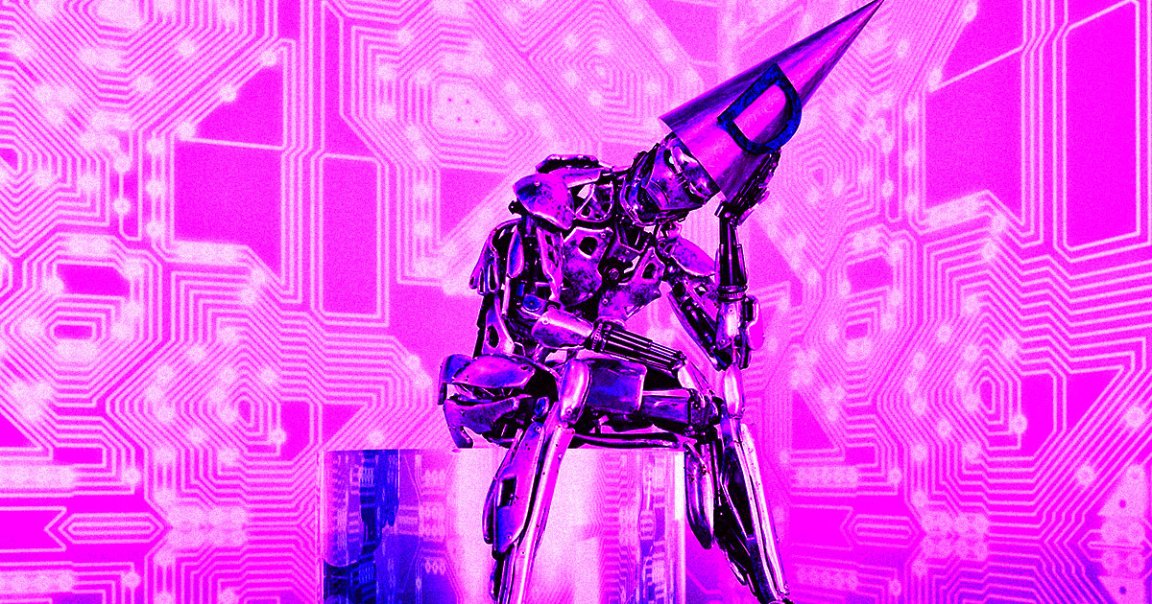
Power users of OpenAI’s blockbuster chatbot ChatGPT were left largely unimpressed by the company’s recently unveiled GPT-5 AI model.
Those who became familiar with the convivial and sycophantic tone of GPT-5’s predecessor were particularly distraught by its “cold” and far less supportive demeanor, accusing OpenAI of cutting corners.
The pushback was significant enough for OpenAI to both make previous iterations available once more to paying customers — and even to lean back into the sycophancy that defined GPT-4o, with the company tweeting on Friday that it’s “making GPT-5 warmer and friendlier based on feedback that it felt too formal before.”
The stakes are incredibly high as OpenAI eyes a half-a-trillion-dollar valuation — but its disappointing new model, which it has been hyping up for several years now, has some insiders concerned and disillusioned, the Washington Post reports.
The uncomfortable reality: it feels unclear that GPT-5 represented any genuine strides towards human-level intelligence, OpenAI’s openly stated goal — it can’t even correctly count the number of r’s in the word “raspberry,” users quickly noticed.
If anything, GPT-5 felt more like two steps forward, one step back, as concerns over an ongoing AI bubble continue to grow.
OpenAI CEO Sam Altman himself told reporters last week that he believes we’re in a “phase where investors as a whole are overexcited about AI” — but claimed his firm wasn’t any trouble because of its outsized influence.
The industry is in a precarious position, transitioning from promising major leaps to far less spectacular, incremental updates. Meanwhile, experts are retooling their predictions of a rogue AI overthrowing humanity, considering the tech’s recent diminutive advancements.
“The Doomer narratives were wrong,” entrepreneur and White House AI czar David Sacks tweeted earlier this month. Instead of AI “leaving others in the dust, and quickly achieving a godlike superintelligence,” the “leading models are clustering around similar performance benchmarks.”
Developers were also left unimpressed.
“It’s not a dramatic departure from what we’ve had before — but it rarely screws up and generally feels competent or occasionally impressive at the kinds of things I like to use models for,” software engineer and AI blogger Simon Willison wrote in a blog post.
While some accused OpenAI of cutting costs by limiting GPT-5’s output, others pointed out that prices for power users were actually quite reasonable.
“GPT-5 is mostly outperformed by other AI models in our tests, but it’s really cheap,” Princeton University computer science doctoral student and researcher Sayash Kapoor told Wired.
Kapoor and his team found that a standardized benchmark test costs $30 to run with GPT-5, and a whopping $400 with Anthropic’s Opus 4.1. But with lower prices comes a noticeable drop in performance, with Opus 4.1 beating out GPT-5 in an accuracy rating test.
As always, standardized AI benchmarks are unlikely to neatly correspond to real-world performance, making direct comparisons difficult.
But in the absence of any major leaps in performance, OpenAI’s customers are starting to ask some tough questions.
Is this really the best the company currently at the forefront of the ongoing AI race has to offer? Given Altman’s grandiose statements in the months leading up to GPT-5’s release, the gap between hype and reality continues to grow.
In February, Altman promised that the leap from GPT-4 to GPT-5 would be “similar” to going from GPT-3 to GPT-4. But considering the widespread disappointment, that couldn’t be further from the truth.
“OpenAI’s GPT-5 is very good, but it seems like something that would have been released a year ago,” developer Kieran Klassen told Wired.
More on GPT-5: OpenAI Seems Really Confused About Why People Use ChatGPT